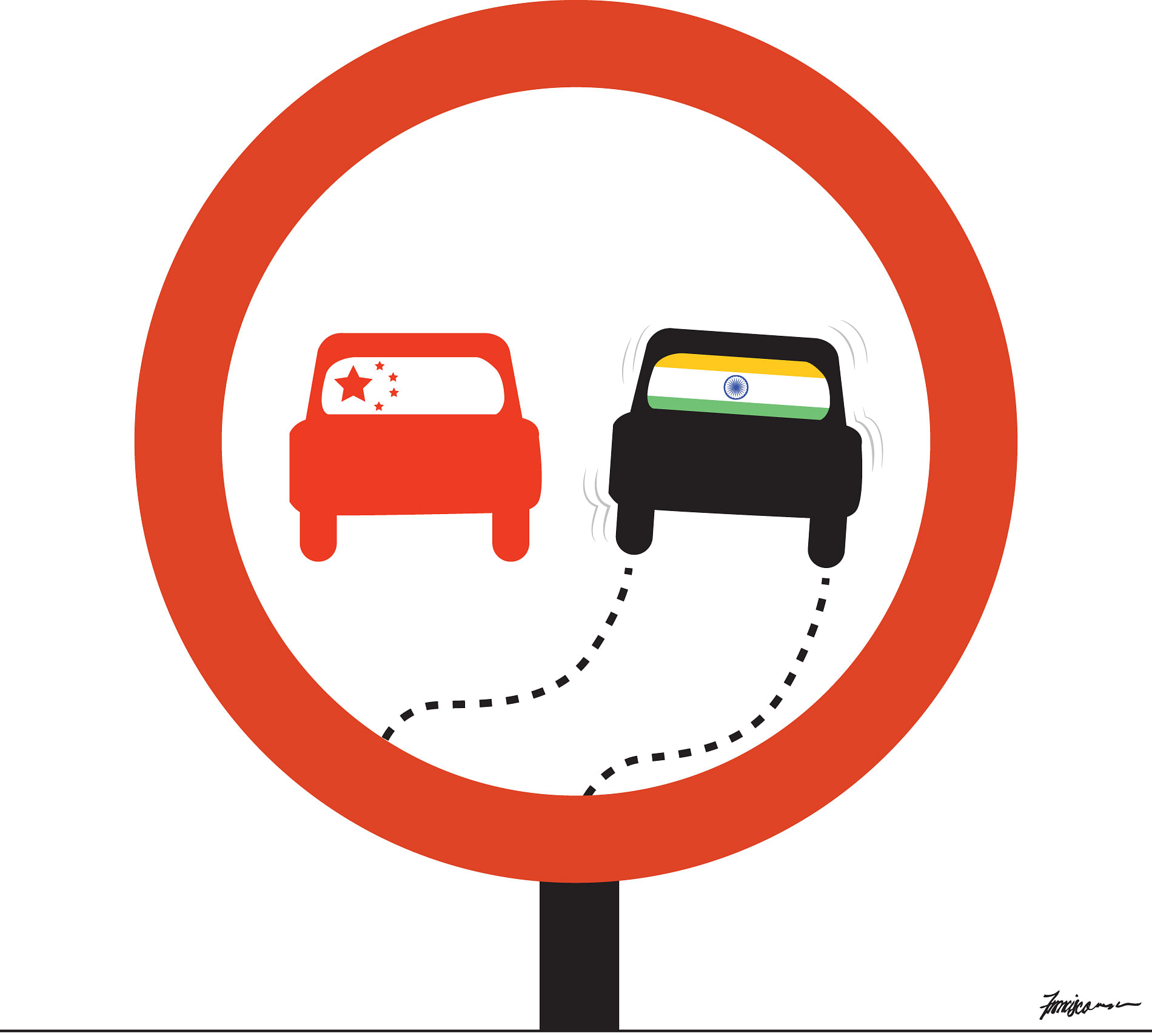Shining India is back - that's what many hyperbolic Indians would have you believe. With China's economy slowing and its markets and policymaking credentials upended, India is plausibly poised to take over as the world's fastest-growing large economy.
Many Indians, using language that evokes the India Shining campaign seen a decade ago, when Premier Narendra Modi's Bharatiya Janata Party was last in power, see more than a glimmer of opportunity in China's misfortunes.
Finance Minister Arun Jaitley said in an interview with the BBC: "An economy that can grow at 8 to 9 per cent like India certainly has viable shoulders to provide support to the global economy."

Godrej Consumer Products chairman Adi Godrej said it was a fine time for India to "shine".
In one of the strongest "move over, China" remarks, Minister of State for Finance Jayant Sinha said Delhi was ready to "take the baton of global growth" from Beijing. He chirpily told an audience in Bihar, one of India's poorest states: "In coming days, India will leave China behind as far as growth and development matter."
On the surface, there is room for optimism. As China weans itself off supercharged investment, its economy will inevitably slow. Officially, growth will drop to 7 per cent this year. More likely, it could head quickly towards 5 per cent or less. India, meanwhile, is expected to expand at 7.7 per cent.
Unlike many other emerging economies, India has not been buoyed by exports of high-priced commodities, so it will not be hit by the Chinese-induced commodities slump - far from it. As the world's third-largest petroleum importer, India benefits greatly from weak oil prices, which improve its current account position and ease inflationary pressures.
Also, India is not a big exporter of manufactured goods. Even if global demand is weak, its economy is fairly insulated - 57 per cent of its gross domestic product (GDP) is from household consumption.
Yet, the idea that India is poised to become the global economy's main event is flawed, to say the least. If the notion induces complacency, it is positively dangerous.
Hopes that India can replace China as the engine of global growth are wide off the mark. In nominal terms - the most appropriate measure when judging an economy's global impact - India's output is a fifth that of China.
India makes up a mere 2.5 per cent of global GDP; China, 13.5 per cent. If China grew at 5 per cent a year, it would add an Indian-sized economy to its already-hefty output in less than four years. Saying India can match this is like saying a mouse can pull a tractor.
On balance, people have read too much into China's market spasms. Certainly, botched attempts to prop up the stock market and move to a more flexible exchange rate have shaken confidence in the perceived infallibility of Chinese policymaking. Certainly, too, the recent turmoil is symptomatic of a deeper malaise in the Chinese economy as it shifts from investment-led growth to consumption-led growth.
For China, the days of relatively easy catch-up have ended. Yet, to write China off is badly misguided. It has the momentum of 30 years of extraordinary expansion behind it.
The idea that India will effortlessly float above Chinese growth levels is hopelessly smug. India's statistics are as dubious as those of China.
People forget that, in February, India changed the way it calculated GDP, adding more than 2 percentage points to its headline growth rate. If we use the old measure, it is still limping along at a far-from-impressive 5 per cent.
Inflated growth breeds a false sense of security. That might help explain why Mr Modi's government has been so slow to pass much-trumpeted reforms.
In this session of Parliament, almost nothing has been done. The prime minister has been unable to enact a goods and services tax, which economists agree would make it easier to do business across a diverse set of states. Faced with opposition from farmers, Mr Modi has all but abandoned land reform, which would have made it simpler to build factories, roads and power plants. Doing business in India continues to be anything but easy.
While India is relatively isolated from the world economy, that is partly because it does not make much that others deem worth buying. For a country eager to become a manufacturing hub that can replace China, that seems more like a weakness than a strength.
None of these problems will disappear because rather dubious statistics say India is growing faster than China. Indian officials would do well to stop gloating - and start enacting some meaningful change.
FINANCIAL TIMES
